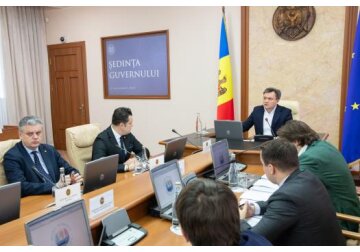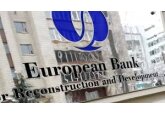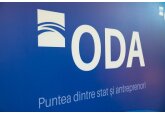
Moldova will receive a grant of €34.03 million from Norway for gas procurement and storage under the EBRD's "Moldova Gas Security Supply Project".
This is stipulated by the relevant grant agreement between Moldova and the European Bank for Reconstruction and Development for the implementation of the "Moldova Gas Security Supply Project ", signed in Chisinau on October 13, the ratification of which was approved by the government at a meeting on Wednesday. According to the Energy Ministry, during many meetings between representatives of the Moldovan authorities and the Norwegian Embassy in Bucharest, the Norwegian government's willingness to offer, through the NANSEN Support Program for Ukraine, financial assistance in a grant to Moldova, including for its energy sector, in order to reduce the socio-economic consequences caused by the war in the neighboring country, was noted. The grant for Moldova in 2023 is estimated at about NOK 500 million, of which NOK 400 million (about €34 million) will be disbursed through the EBRD, which is the fastest way for Moldova to obtain these financial resources for the purchase and storage of natural gas reserves. It should be noted that an agreement was signed between the Moldovan government and the EBRD for a €300 million sovereign loan for the implementation of the Moldova Gas Security Supply Project, as well as a grant through the NANSEN program. These grant funds, as well as the credit resources, will be used to buy natural gas from diversified sources, in order to reduce the risks related to the dependence of supplies on a single source and indirectly ensure Moldova's energy security. The Energy Ministry recalled that in the situation of the reduction of natural gas supplies to Moldova by Gazprom in October 2021, when the volume of gas from the Russian gas holding company covered only 67% of the country’s demand, and all the events that took place subsequently, it became necessary to diversify the sources of natural gas imports, as well as to create natural gas reserves through suppliers/traders present on the market and with such experience. Sources of financing were obtained under the Moldova Gas Security Supply Project, for the implementation of which the EBRD has committed €300 million in two tranches. This loan agreement will be supplemented by an additional contribution of €165 million, which will complement a grant of approximately €34 million provided by the Norwegian Government through the NASEN program. The grant is provided by the Norwegian government through the NANSEN program, which provides support to Ukraine and neighboring countries affected by the war. Moldova was selected to receive financial assistance under this program as a non-participating party in the conflict, which has been most affected by the crisis due to the war. The Norwegian government made access to the grant conditional on its management by an international financial authority. Consequently, the decision was made to access the grant funds through the EBRD and use them in the same context as the funds offered under the "Moldova Gas Security Supply" loan agreement. The grant agreement aims to strengthen Moldova's energy security by complementing the financing mechanism with a grant component to prevent/mitigate possible risks associated with natural gas supply interruption. Its implementation will allow purchasing natural gas and building up natural gas reserves, to support the diversification of suppliers and sources of supply in accordance with the provisions of the Law on Natural Gas. All Moldovan natural gas consumers will be direct beneficiaries of the project, which will reduce prices for natural gas purchased on the free market. The grant component will be used to reduce the weighted average cost of purchased gas. The Project will procure and store natural gas in underground storage facilities in neighboring countries during the warm period of the year, when the demand/price for natural gas is lower, and then resell it to suppliers with public service obligations under the existing legal framework. Natural gas will be procured through auctions conducted in accordance with the procedure established by the EBRD. // 29.11.2023 – InfoMarket







